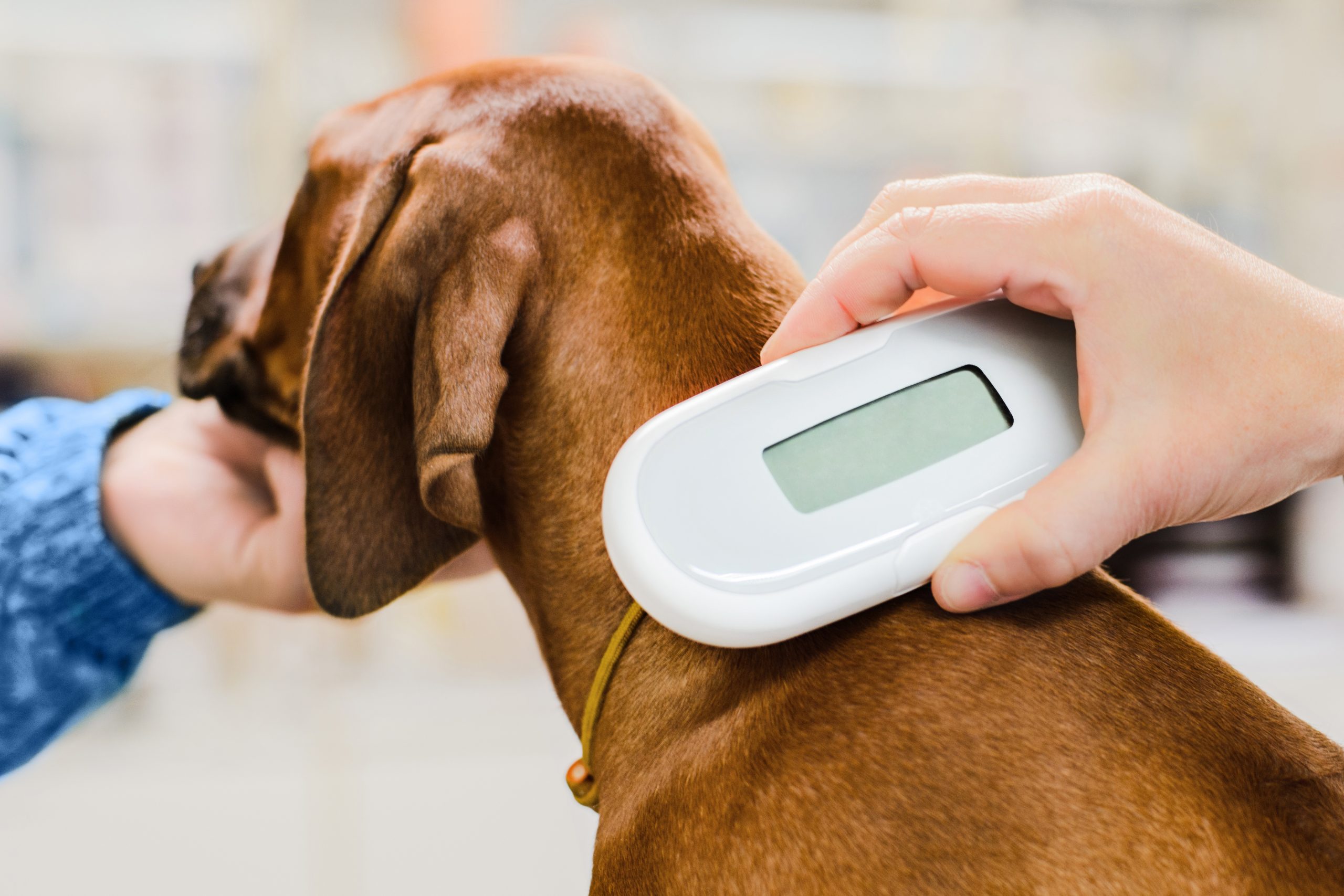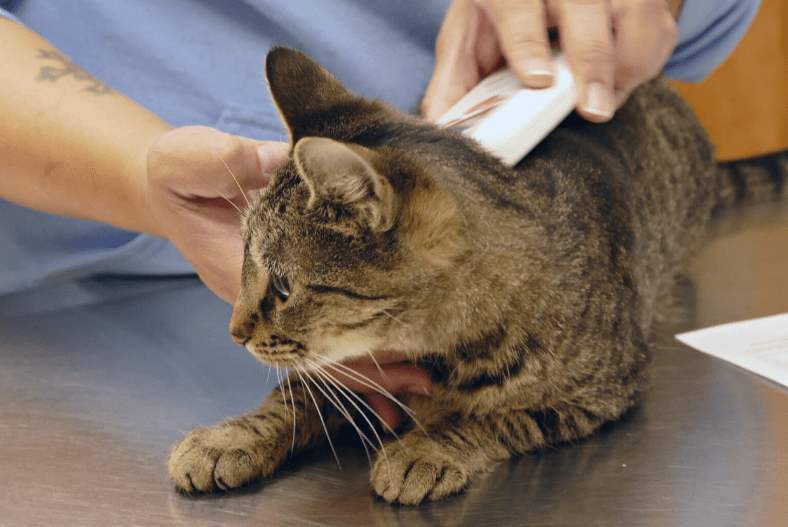-
Adopt
-
Veterinary Care
Services
Client Information
- What to Expect – Angell Boston
- Client Rights and Responsibilities
- Payments / Financial Assistance
- Pharmacy
- Client Policies
- Our Doctors
- Grief Support / Counseling
- Directions and Parking
- Helpful “How-to” Pet Care
Online Payments
Referrals
- Referral Forms/Contact
- Direct Connect
- Referring Veterinarian Portal
- Clinical Articles
- Partners in Care Newsletter
CE, Internships & Alumni Info
CE Seminar Schedule
Emergency: Boston
Emergency: Waltham
Poison Control Hotline
-
Programs & Resources
- Careers
-
Donate Now
Position Statement: The MSPCA-Angell encourages owners to have their pets microchipped. Microchips, combined with a collar and ID tag, are the most reliable system for the reunification of lost or stray pets with their owners.
What is a microchip?
A microchip provides identification for your pet. The chip is a bit bigger then the size of a grain of rice and is inserted in the loose skin between the shoulder blades of a dog or cat through a needle. The experience of receiving a microchip for your pet is very similar to that of receiving a vaccination.
How do microchips work?
Microchips are not tracking devices. They can only be read in the presence of your dog or cat. The chip contains a unique ID number that can be read by a microchip scanner waved over your pet. The ID number can then be matched with your contact information once you have registered the microchip.
Why microchip?
Microchips help reunite pets with their owners. Last year, microchips helped us identify over 100 animals that came into our adoption centers as lost/stray pets. Even if your cat is an indoor cat or your dog is always with you, accidents happen and pets escape (if you are a member of your town’s Facebook or Nextdoor page – you see how often someone finds a lost pet!). A microchip is the best way for anyone involved to find the owner. Microchips can also help prove ownership of a pet, your dog might not wander, but if someone took your dog, a registered chip would be helpful in claiming ownership. Chips can also sometimes be part of the requirements for international travel.
How do I get my pet microchipped?
Most veterinarians will offer a microchip at your pet’s annual visit. The MSPCA-Angell offers microchips as part of our low-cost spay/neuter package for pets of qualifying owners.
My pet already has a chip. How do I know if it is registered?
You need to know your pet’s microchip number. Most veterinarians will put your pets chip number in their medical record. You can also ask your veterinarian to scan your pet for a chip. Keeping your microchip contact information up to date is critical. Visit the AAHA microchip database and enter your pet’s microchip number. This will give you the company your chip was registered with. Contact that company to make sure your phone number, address and email are up to date.
Read more:




